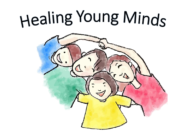In the digital era, social media platforms have become integral to the daily lives of children and adolescents, offering avenues for connection, self-expression, and information. However, a growing body of peer-reviewed research indicates that excessive and unregulated use of these platforms can adversely affect the mental health of young users.
Negative Impacts of Social Media on Mental Health
Empirical studies have identified several ways in which social media can negatively influence the mental well-being of children and adolescents:
- Increased Risk of Depression and Anxiety: Research indicates that adolescents’ engagement with social media can lead to heightened feelings of depression and anxiety. A study published in the British Journal of Developmental Psychology found that adolescents are acutely aware of online social norms, and the number of reactions they receive on social media posts can significantly impact their mood and self-worth.
- Exposure to Cyberbullying: The anonymity provided by social media platforms can facilitate cyberbullying, which has been linked to increased mental health issues among adolescents. A study highlighted that exposure to cyberhate can lead to mental health implications, including physical health issues such as headaches and sleep disturbances.
- Sleep Disruption: Engaging with social media, especially during nighttime, can interfere with sleep patterns. Disrupted sleep has been associated with increased emotional health issues among adolescents.
- Negative Social Comparison and Self-Esteem Issues: Social media often presents curated and idealized images, leading young users to engage in negative social comparisons. This behavior can result in lowered self-esteem and increased feelings of inadequacy. Evidence suggests that more intense use of social networking sites is related to more frequent negative social comparisons among young adults.
Potential Benefits of Social Media
Despite these challenges, peer-reviewed research also highlights potential benefits of social media when used mindfully:
- Social Support and Community Building: Social media platforms can provide spaces for young people to connect with peers, share experiences, and receive support, especially for those who feel marginalized or isolated. Studies have found that adolescents use social media to foster positive connections, which can enhance their sense of belonging and well-being.
- Access to Information and Resources: These platforms serve as valuable tools for learning and accessing information on various topics, including mental health resources and educational content. Engagement with supportive online communities can offer adolescents coping strategies and a sense of empowerment.
Recommendations for Parents and Guardians
To mitigate the negative impacts of social media on young users, consider the following evidence-based strategies:
- Set Boundaries and Monitor Usage: Establish clear guidelines regarding the amount of time spent on social media and the types of content accessed. Monitoring and limiting screen time can help reduce exposure to harmful content and promote better mental health outcomes.
- Encourage Open Communication: Maintain an open dialogue about online experiences. Encourage children to discuss any negative interactions or content they encounter, fostering a supportive environment.
- Promote Offline Activities: Encourage participation in offline hobbies, physical activities, and face-to-face social interactions to balance online presence and support overall well-being.
- Educate About Digital Literacy: Teach children about the potential risks of social media, including the pitfalls of social comparison and the importance of critical thinking when engaging with online content.
By implementing these strategies, parents and guardians can help children navigate the complexities of social media, maximizing its benefits while minimizing potential harms.

